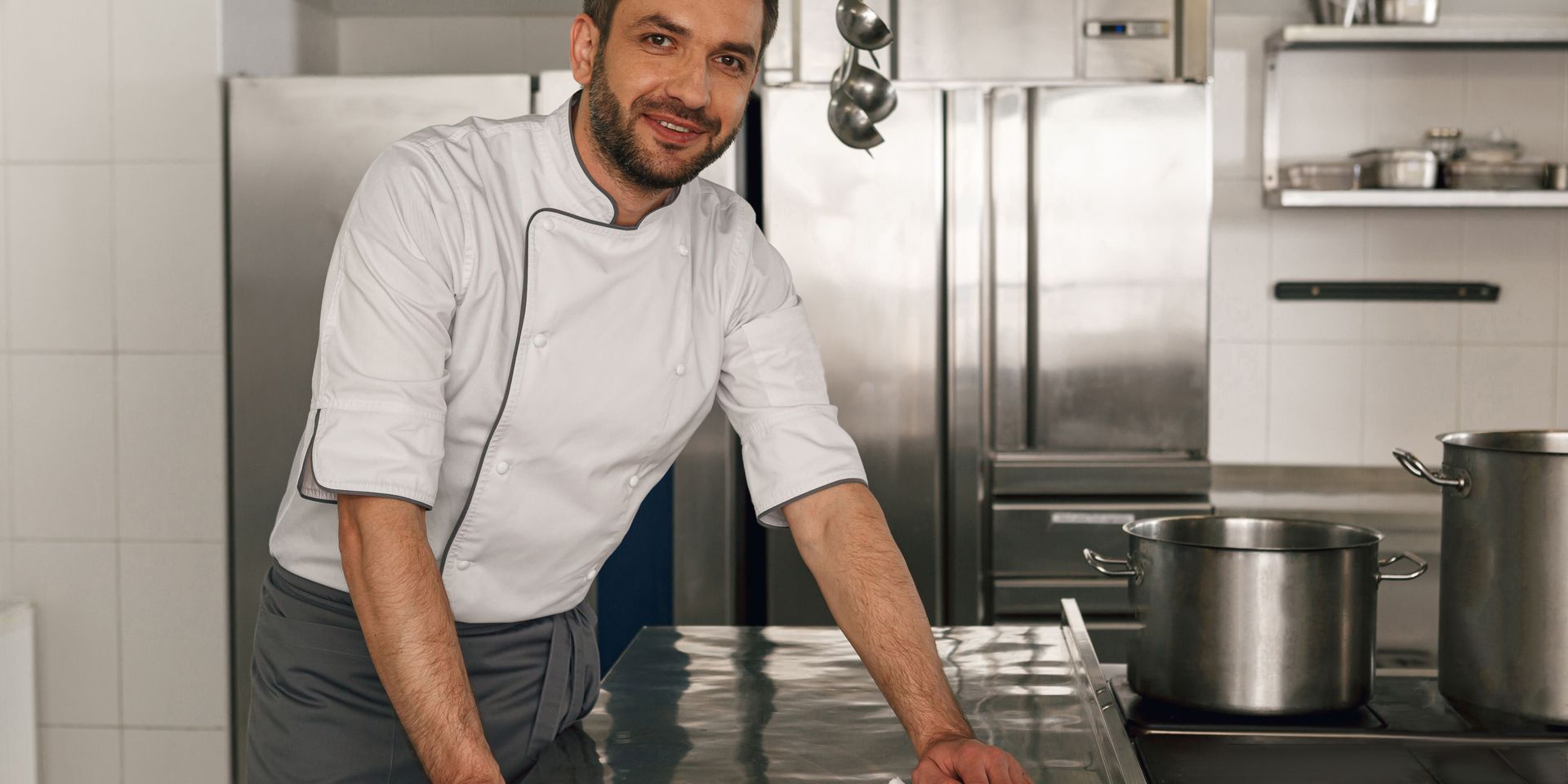Being a kitchen porter requires much more than speed, it’s a job that demands method and precision. A porter must know how to organize their workstation, follow hygiene and safety standards, and ensure spotless cleaning of both dishes and kitchen equipment.
A good physical condition is essential to keep up with the often intense and extended pace of service. The porter also needs to be able to work under pressure, staying focused and efficient throughout.
Finally, teamwork is key: coordination with chefs and front-of-house staff keeps the service running smoothly. These technical and interpersonal skills make the porter an essential support for the entire kitchen brigade.
Training to become a kitchen porter
The role of kitchen porter is open to everyone, with no specific diploma required, and is mostly learned on the job: understanding the workstation, hygiene rules, service rhythm, machine operation (hood/conveyor), and workflow organization. A short HACCP briefing and initial on-the-job training with the head chef or kitchen supervisor are usually enough to start confidently.
However, some qualifications can make hiring and progression easier:
CAP Cuisine or CAP Multi-skilled Catering Agent (basic hygiene, organization, and simple preparation).
Professional Title: Catering Employee (covers both front and back of house).
Short modules recommended: HACCP, manual handling/posture, first aid (SST).
These paths provide valuable professional habits (traceability, cleaning plans, safety) and open doors to positions such as commis chef or kitchen assistant.
Kitchen porter salary in 2025
For an entry-level position, pay generally starts at the French hospitality minimum wage (SMIC hôtelier), €1,801.80 gross per month in 2025.
Salaries increase depending on the type of establishment (hotel, brasserie, fine dining, collective catering), working hours (evenings, weekends, holidays), and experience. In larger or more demanding kitchens, earnings often reach €1,900 to €2,000 gross, sometimes supplemented with free meals, overtime pay, or bonuses.
Career development opportunities
After a few months, the kitchen porter can take on more autonomy (managing their station, organizing workflows, monitoring hygiene) and move on to basic preparation tasks. The first natural step up is commis chef or kitchen assistant, learning essential techniques such as cutting, cold/hot prep, and mise en place.
With a short training program or an apprenticeship CAP Cuisine, career progression can lead to cold prep cook, then line cook, and eventually chef de partie, depending on motivation and consistency.
In collective catering, alternative paths include regular-schedule kitchen roles, hygiene coordination, or plunge management (equipment maintenance, cleaning plans, traceability).



